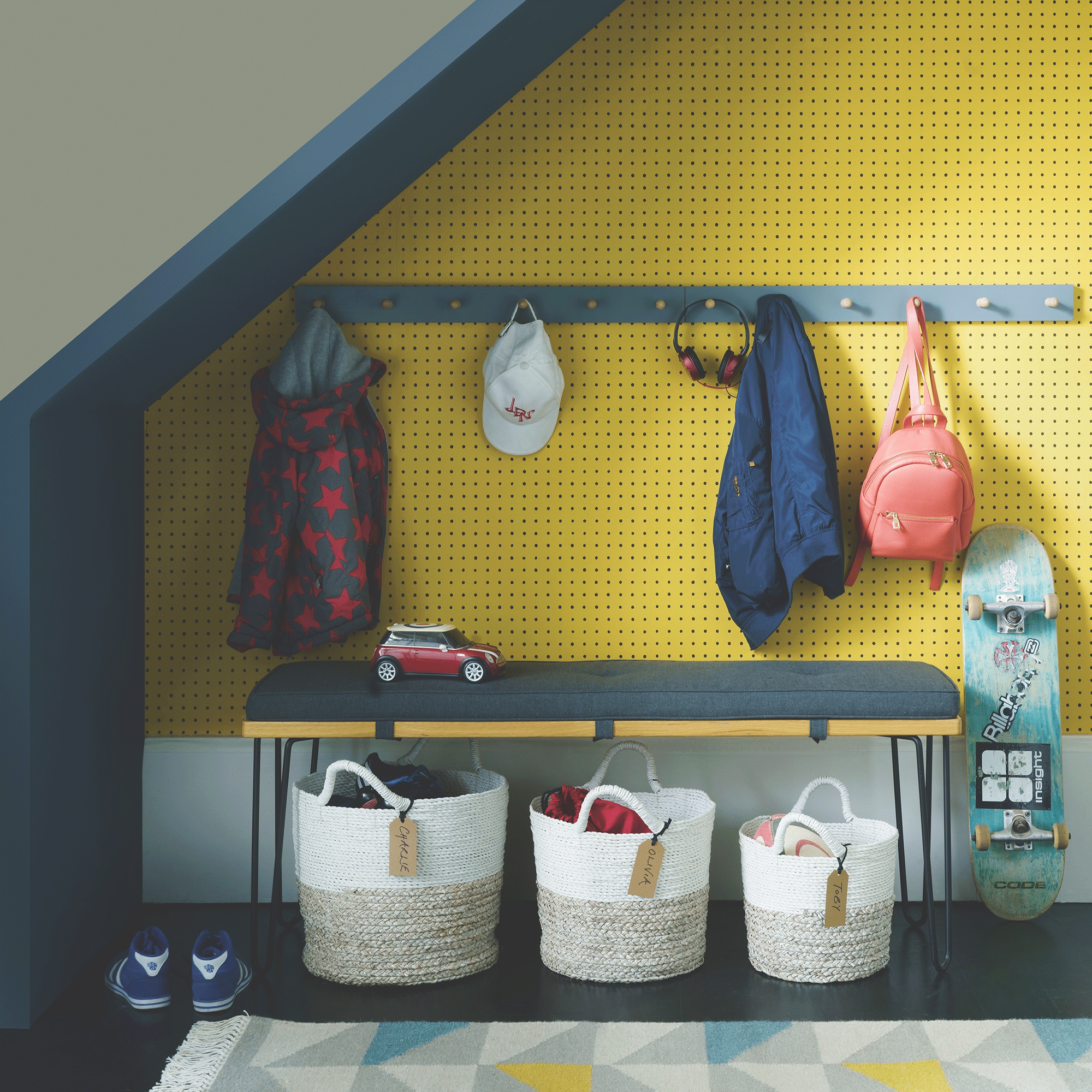
Ever been late for work because it has taken you half an hour to figure out what to wear? Ever found yourself eating yet another girl dinner because working out what to cook is just too much? Then you know how debilitating decision fatigue is, but with a few tweaks to things such as your kitchen storage ideas or how you organise your wardrobe can help ease it and make your day a little bit brighter.
Neuroscientist Dr Tara Swart explains, ‘When we wake up, we have a finite amount of decision-making power which gets eroded by every decision we make. Eventually, we have limited resources to make decisions and we feel tired. We may have had an intention to clean the house but then feel too tired to do so. Putting this off feels demotivating and the environment remains not clean for longer, which we don’t feel good about.’
Kate Ibbotson, a psychotherapist and professional organiser, adds, ‘When it kicks in, thoughts and logic become less clear and our concentration wanders, making us more easily distracted. Mood changes may also occur when decision fatigue kicks in, especially emotions of frustration, anger, fear or sadness.’
It can become a vicious circle: you’re too tired to make good decisions, so the clutter builds… which makes it even more overwhelming to get under control again. A study by researchers at Princeton University found that clutter can make it harder to focus on a task. The visual cortex in your brain can be overwhelmed by the peripheral stuff, distracting from the task at hand. So, the less you tidy, the harder it becomes to tidy.
Expert tips to ease decision fatigue at home
If your love of ‘creative’ clutter means you’re unbothered by that, take note that living in a messy home can lead to higher levels of the stress hormone cortisol, according to a study published in Personality and Social Psychology Bulletin.
As Kate Ibbotson points out, ‘It can also be stressful to have to search through clutter to find things that we need, especially if they are important or we are in a rush. Dealing with the mess surrounding us in our homes means we have one less thing weighing on our minds. Living in a tidy home can give you a sense of pride and control. Knowing that you are on top of your surroundings also helps regulate the nervous system. Knowing that your environment brings you joy means you are less likely to compare yourself to others or worry about other people judging you.’
1. Minimise your wardrobe
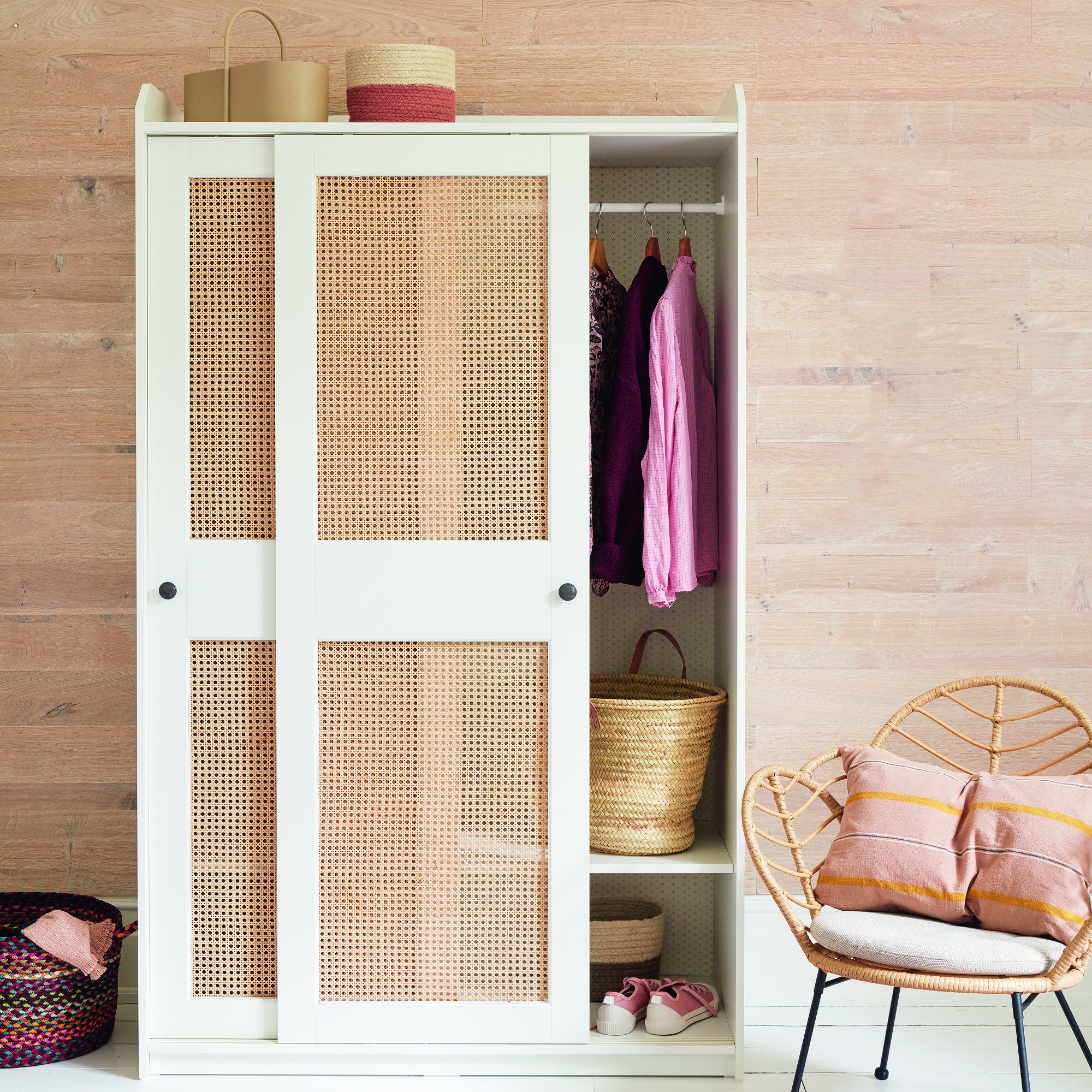
Professional organiser Vicky Silverthorn at You Need A Vicky says, ‘When I’m asked about keeping a wardrobe tidy and organised, there really is only one magic answer: the less you have the easier it is to keep under control. This means enjoying your clothes and getting ready so much more quickly.
'Remove seasonal items and holiday clothing (such as beach and ski wear). This will immediately free up space so your mind isn’t battling with the unnecessary each day. There will be more visibility for making quicker choices.’
If you are really struggling to choose an outfit quickly each morning, consider looking into some new wardrobe ideas to find one that works best for you.
2. Categorise everything
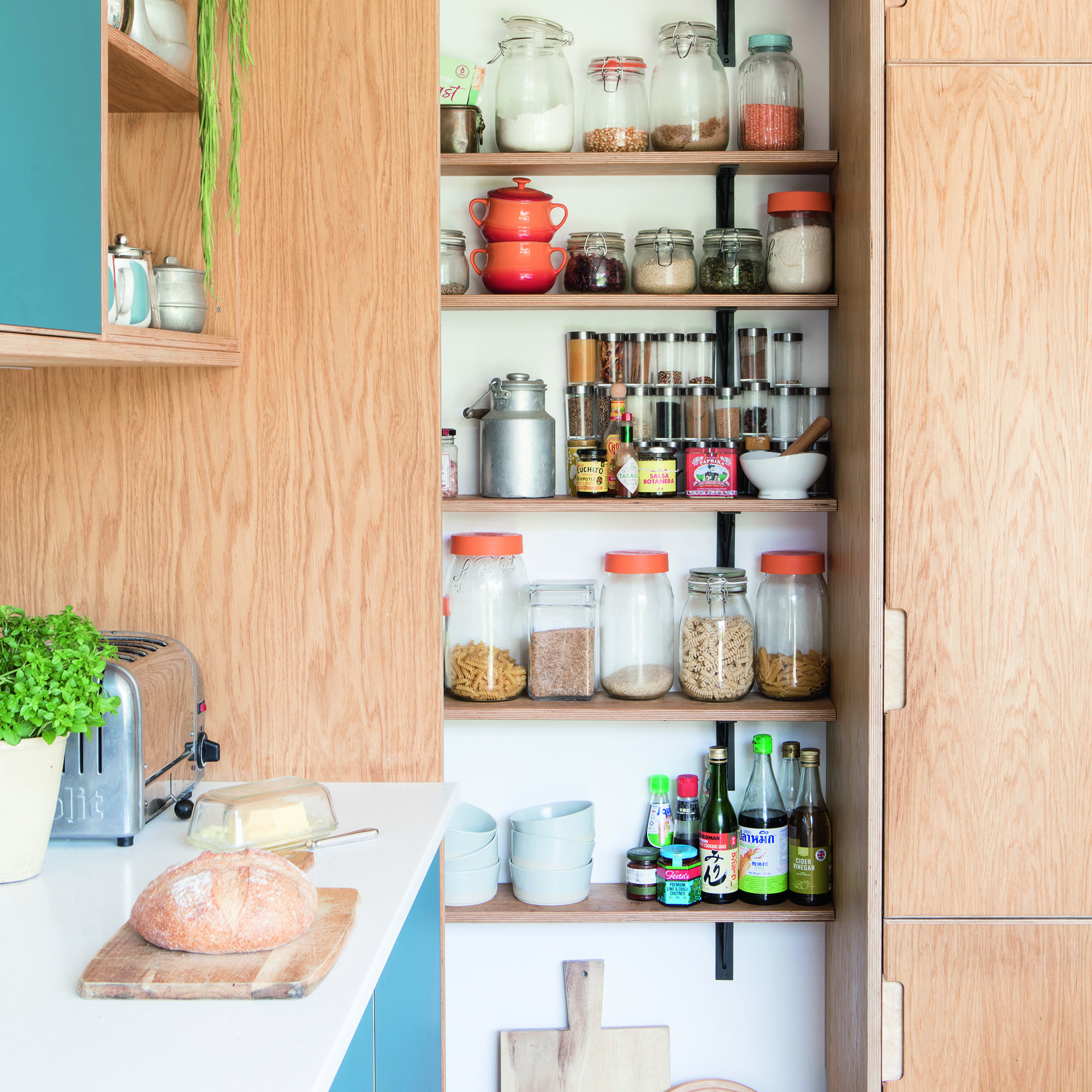
Vicky continues, ‘Tops with tops, trousers with trousers and even sleeve lengths stored together can really help with getting dressed and locating what you’re looking for quickly in the morning, as well as putting things away at the end of the day. Some people also find it helpful to put work clothing together if it differs from weekend clothes.’
This works when organising kitchen cupboards, too: in your larder cupboard, put foods into groups so you can simplify the decision-making process by seeing exactly what you have within each type of food.
This rule also applies to clothes clutter: Vicky says, ‘If you find it hard to tidy as you go along, when you’re throwing things on that bedroom chair at least put the trousers in one pile, jumpers in another, etc. This will mean a tiny bit of efficiency is added when you do get around to doing it!’
3. Pre-plan, pre-prepare, pre-order
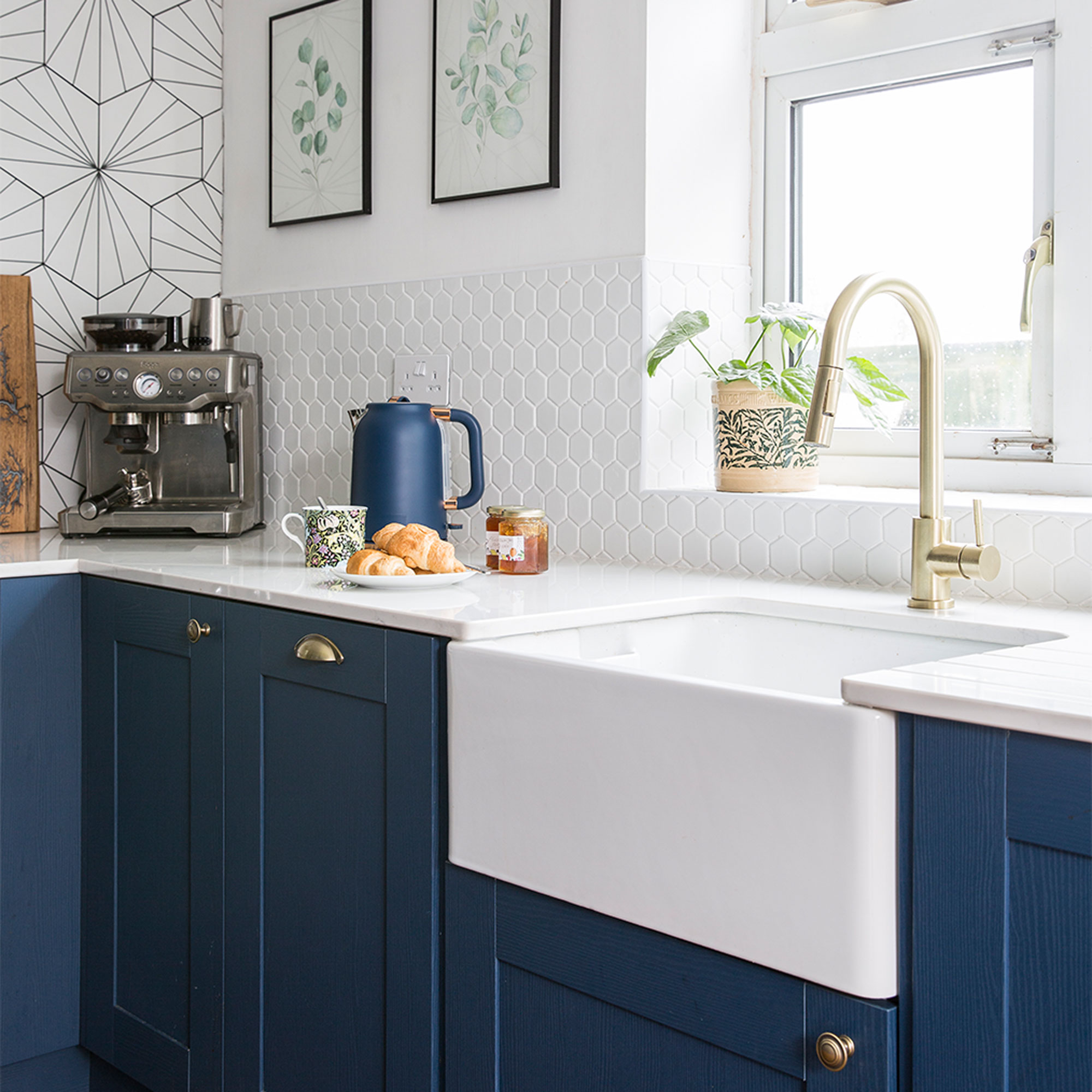
Kate Ibbotson advises, ‘Increasing automation in your life can declutter your time. For example, using a meal delivery subscription service.’ Alternatively, take a tip from meal preppers like the Meal Prep King and spend a chunk of time at the weekend making and freezing/refrigerating meals for the week ahead. The other benefits of this approach can include reducing waste and food expenditure.
This idea works for clothes, too: choose your outfits for the working week, including shoes, accessories and undies, and hang them out in your bedroom ready to throw on in the morning.
Also, try automating your shopping decisions by setting up favourites for online supermarket orders and signing up to Amazon subscriptions for products you get through quickly, such as pet food, cleaning supplies and toiletries.
4. Have a morning routine…
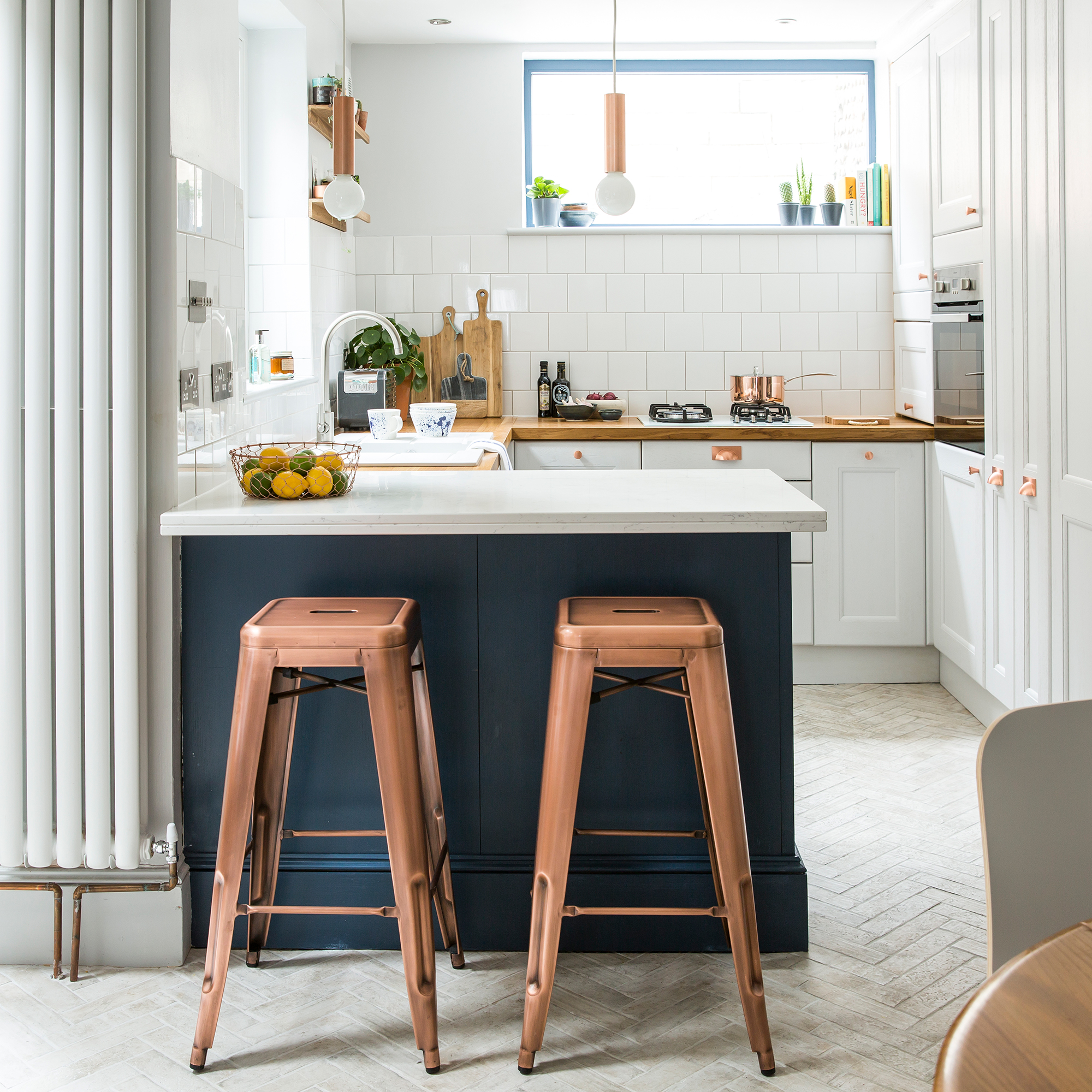
Sticking to the automation idea – by developing and sticking to a routine, you can put your brain on auto-pilot. Chrissy Halton, a professional organiser at Organise My House, says ‘The more you can stop having to decide on things, the better. Setting up a morning routine that becomes a habit – the time you get up, the tasks you do and in what order – and when you leave the house. That way you can keep those decision-making muscles for the more important parts of the day.’
You can combine your habit with desire paths around your home to set up prompts to encourage this routine, for example, a chair in the corner of your bedroom for journaling and your favourite mug ready to use next to the kettle.
5.…and an evening reset
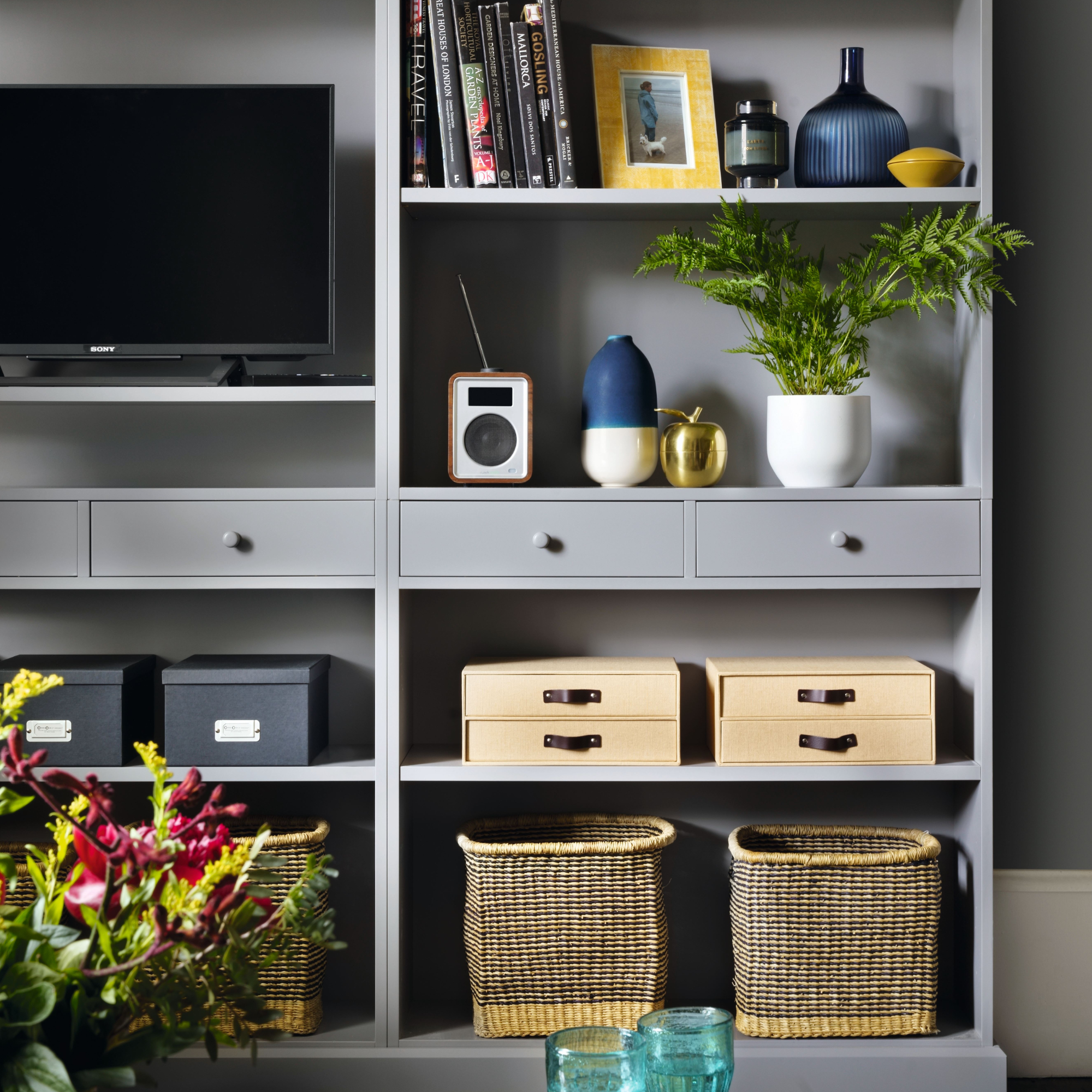
Chrissy continues, ‘I have a 10-minute tidy-up time each evening where I can reset the house. This gets everyone involved in something that's quick and easy, but really effective at keeping things maintained. If you tie this in with doing something nice with the kids afterwards, then they get that work-reward link which can be powerful for them growing up. You can show them that doing quick chores can give you time to spend on nicer things…’
Sue Spencer, a KonMari Consultant (expert in Marie Kondo’s organisation techniques) and owner of A Life More Organised takes this a step further: ‘I’ve also used a time tracker visual timer to help families establish an evening routine reset. This is a visual traffic-light system that shows children how much time they have.
'I’ve used it for a three-stage system: 10 minutes of tidy-up time (putting toys away, clearing up; five minutes to get ready for tomorrow (school bags, lunch boxes, shoes in the right places); 15 minutes reward (reading together or watching TV).
6. Set up stations

Chrissy Halton advises, ‘Set up stations in your home for your keys/purse, your morning makeup/toiletries, your lunch/drinks, your work stuff, etc, and stick to putting things back. This means you make the decision about where to put things once – and then relax!’
Kate Ibbotson loves this strategy, too: ‘Over time, putting things back in their places becomes automatic. Store items near to where you will use them. If things are easy and logical to put away, you’ll save brainpower.’
The key to making this work and stick is to not to get too granular with your storage. For example, use one hallway storage idea to house everything you need before running out the door. Of course, there are always things that are hard to categorise, or times when you just can’t be bothered. This is where catch-all baskets come in: trays or baskets for chucking stuff in until you have time to sort it out properly later, that keep your rooms tidy in the meanwhile.
7. Develop a one-a-day habit
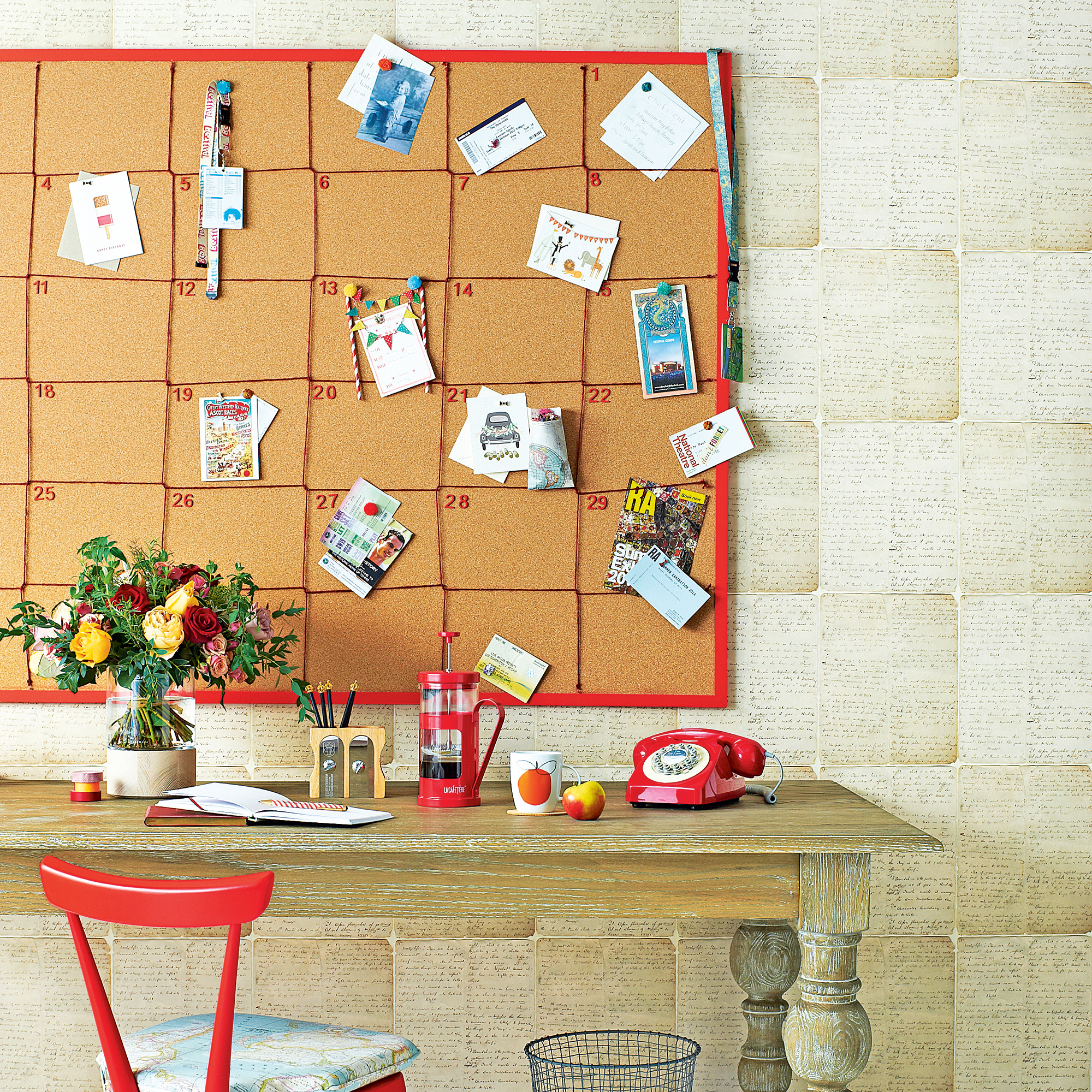
Assign one task to each day of the week, write out the plan and stick it on the fridge to put a stop to overthinking overwhelm. A little bit everyday is far less scary than spending half your weekend doing a massive binge-clean.
Chrissy Halton reveals her routine: ‘Monday – bathroom and towels; Tuesday – bedrooms and bedding; Wednesday – kitchen; Thursday – living room; Friday – hallway; Saturday – garden and maintenance; Sunday – ironing and meal prep.’
8. Use a timer
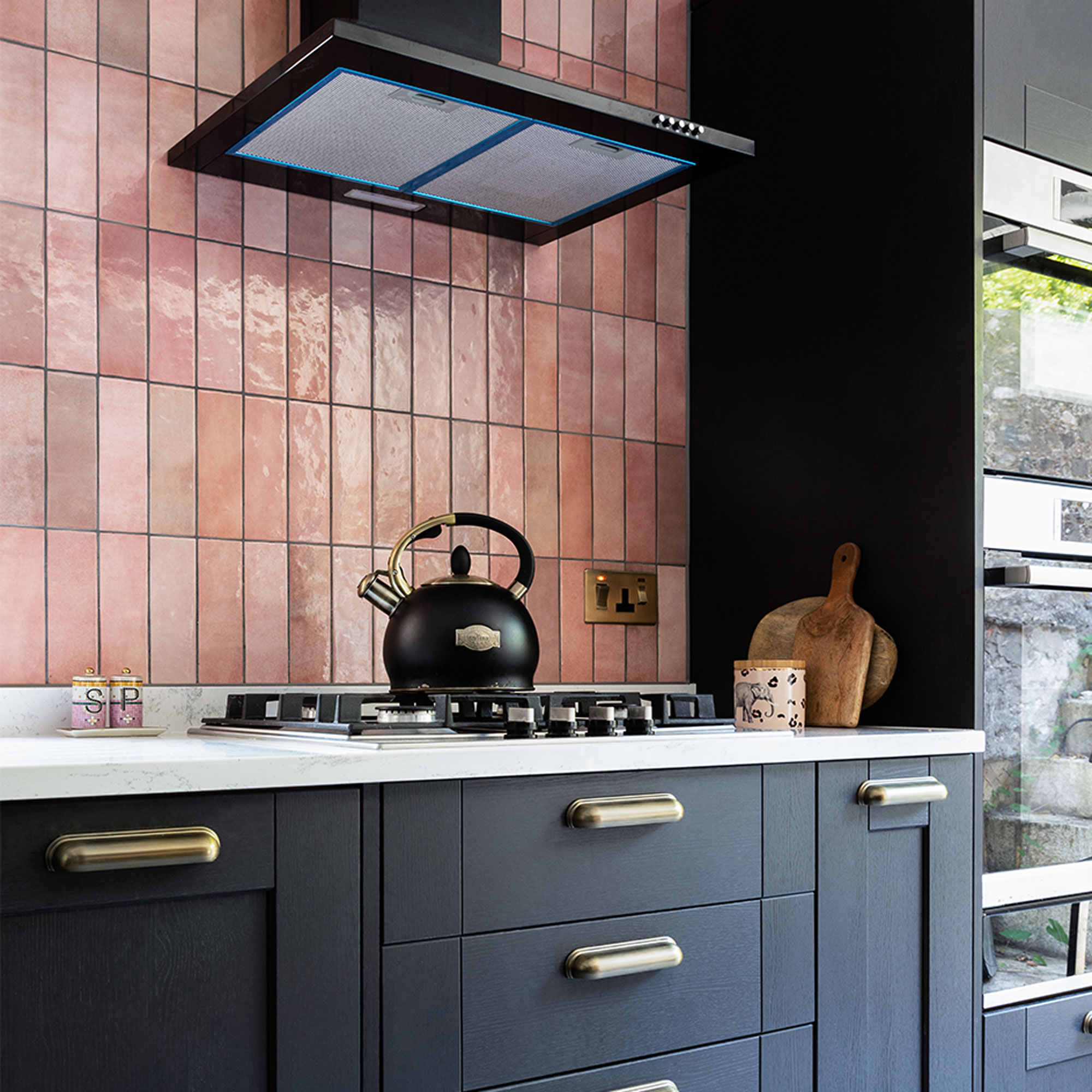
Much loved by cleaning influencer Mrs Hinch, the timer trick can be adapted to suit your lifestyle. Chrissy Halton shares, ‘I have kettle-boiling jobs. There’s a list by the kettle and when it's boiling (around 2-3 mins) I can get at least one thing ticked off. This saves wasting time wondering what to actually do!
'Usually, the tasks that work best are things like paying a bill, getting part of the evening meal prepped or cleaning a shelf. It's always amazing to me how many tasks you can get done over a week, and what an impact those seemingly insignificant pockets of time can have.’
9. Get kids involved

Sue Spencer explains, ‘Gathering similar items together (eg. books or soft toys) is the first step in tidying up and decluttering, so set a challenge to see who can find the most of one type of object in a set amount of time and returning it to a room is a great way to get started. Remind them to look under beds and in toy boxes, and make it fun by making the person with the biggest pile the winner.’
Another strategy is to use colour to get kids to take responsibility for their own clutter: ‘We can’t expect them to tidy up if we haven’t shown them how to, so a simple system which makes it easy to return things to their home really helps. Baskets or containers that are clearly labelled (with pictures if they can’t read) makes it obvious and easy to put things away.’
10. Delegate decisions
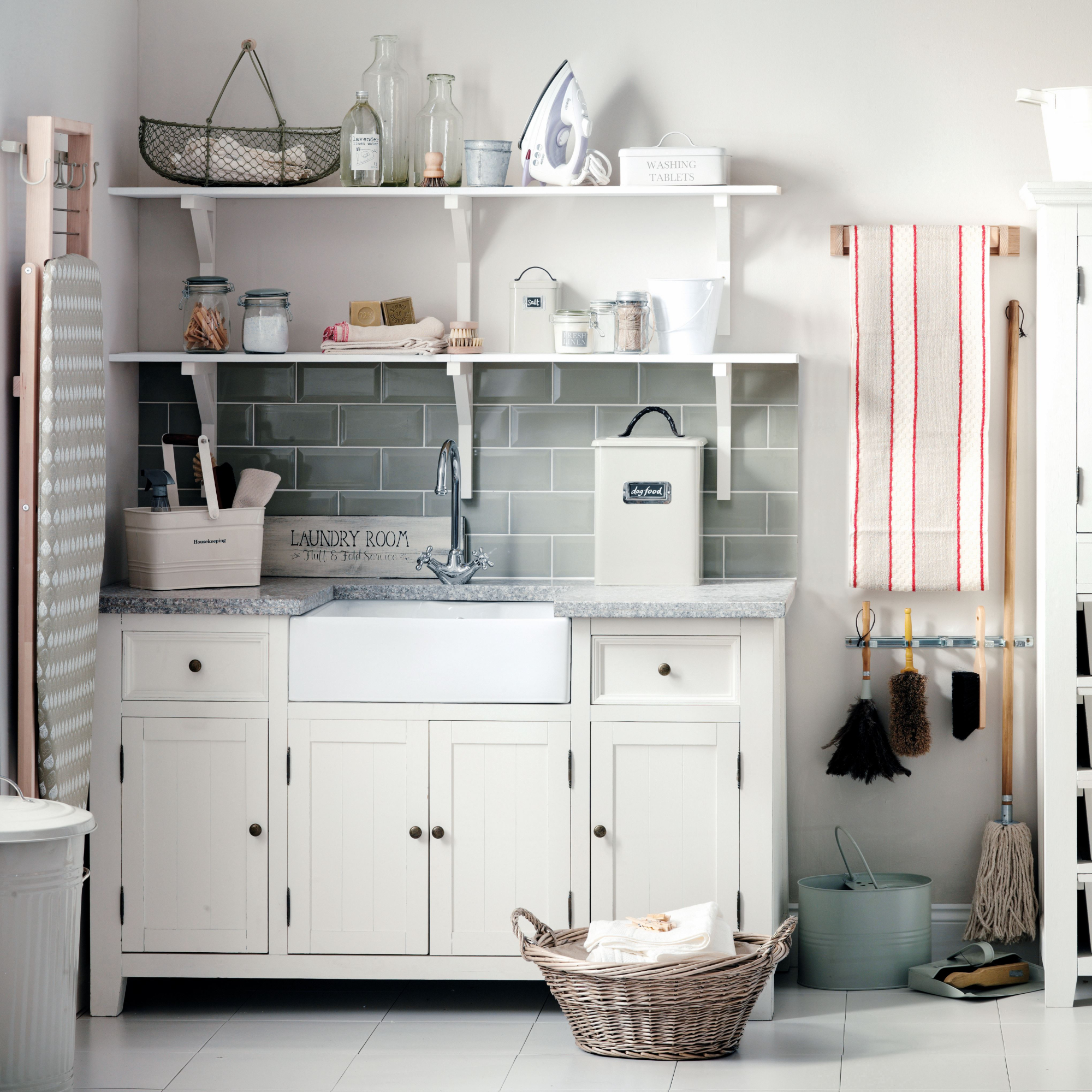
Chrissy advises, ‘Do this based on what people like as much as possible. For example, my daughter actually likes dusting the house (something I don't!) so it makes sense for her to do this as her main chore. Sometimes she's keen to hoover, or cook a meal etc. See what they like as they may well surprise you!
‘Set up a rota that takes into account what time people have available, when, and what they are capable of doing (age-related usually). Do this by having all the chores written down and get the family to sit together to go through it all. At least they can all see what goes into running the house when it's all written down – as I'm sure most parents will be doing so much behind the scenes that gets missed by others.’
FAQs
How do you counteract decision fatigue?
Alex Bothwell, a clinician at Oxford CBT advises, ‘Breaking up cleaning tasks into smaller achievable goals can stop them feeling overwhelming and help to support motivation. Creating a schedule to plan when, where and what you will clean can help to specify the goals and make it more likely that you will complete them. Also, remember to enjoy your tidy and organised space and recognise your achievement of cleaning.’
Why am I so tired of making decisions?
Chrissy Halton, a professional organiser at Organise My House, says, ‘We make literally thousands of decisions each and every day, and if we're not careful our decision-making muscle can be worn out before we even leave the house each morning.’
Kate Ibbotson, psychotherapist and professional organiser at A Tidy Mind, adds, ‘During times of stress (a house move, relationship breakdown, etc), mental and emotional capacity can be lower so decision fatigue may set in more quickly. This can also happen if our basic needs physically are not met – if hungry, thirsty or tired. Or if our emotional needs are not being met.’
Is decision fatigue the same as burnout?
No, it’s not – as Alex Bothwell, a clinician at Oxford CBT explains: ‘Decision fatigue refers to difficulty in making decisions as a result of having to make a lot of them. When experienced, it can result in an inability to make decisions or poor-quality decisions. The symptoms include procrastination, avoidance, indecision and impulsivity.
'Burnout refers to total mental, emotional and physical exhaustion. It is caused by prolonged and excessive stress and can result in interpersonal difficulties, professional and personal dissatisfaction, isolation and increased hopelessness. Symptoms of burnout include, feeling tired all the time, isolated, defeated and helpless, overwhelmed and inability to complete tasks.’
See how incorporating just a few of these tips into your everyday tasks could help you claim back a little decision making power and energy.







